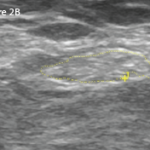 Working in conjunction with the American Association of Hip and Knee Surgeons (AAHKS), the ACR recently released a guideline on the optimal timing of elective hip or knee arthroplasty for patients with moderate to severe osteoarthritis or osteonecrosis who have already tried nonoperative interventions, without sufficient improvement. The guideline emphasizes the importance of shared decision making, incorporating individual patient needs, circumstances and preferences. It also conditionally recommends that joint replacement not be unnecessarily delayed by the requirement of additional nonoperative interventions.1
Working in conjunction with the American Association of Hip and Knee Surgeons (AAHKS), the ACR recently released a guideline on the optimal timing of elective hip or knee arthroplasty for patients with moderate to severe osteoarthritis or osteonecrosis who have already tried nonoperative interventions, without sufficient improvement. The guideline emphasizes the importance of shared decision making, incorporating individual patient needs, circumstances and preferences. It also conditionally recommends that joint replacement not be unnecessarily delayed by the requirement of additional nonoperative interventions.1
Guideline Backdrop

Dr. Hannon
One of the co-principal guideline investigators is Charles P. Hannon, MD, MBA, senior associate consultant in the Department of Orthopedic Surgery at Mayo Clinic, Rochester, Minn. He says that third-party payers often dictate whether patients are approved for arthroplasty, even when patients with severe disease have tried multiple nonoperative therapies without an acceptable improvement in pain, function and quality of life.
Even if the clinician and patient have collaboratively decided that arthroplasty is the best next step, a third-party payer may require a delay or an additional intervention, such as physical therapy, a different kind of physical therapy, another non-steroidal anti-inflammatory drug (NSAID) or joint injections. Other times, insurers may deny coverage for the procedure altogether unless certain criteria are met, such as a specific body mass index (BMI).
Susan M. Goodman, MD, professor of clinical medicine at Weill Cornell Medicine, an attending rheumatologist at the Hospital for Special Surgery, New York City, and co-principal investigator of the guideline, says, “Patients are facing unprecedented obstacles constructed by third-party payers preventing medically or surgically appropriate treatment. These have led to delays in treatment, as well as prolonged and unnecessary pain and loss of function. The abuse of pre-authorization has exploded, creating logjams in timely treatment.”
Jasvinder A. Singh, MD, MPH, professor of medicine and epidemiology at the University of Alabama at Birmingham, a staff rheumatologist at the Birmingham Veterans Affairs Medical Center and co-principal investigator of the guideline, adds, “Unnecessary delays result in patient suffering, poor quality of life, disability, decreased productivity at home or work, and potentially isolation and depression.”
Several writers of the guideline had previously assessed policies from several major payers. They found that payer policies used to deny or delay arthroplasty often cited medical literature that applied primarily to early-stage degenerative joint disease, studies that had limited or no applicability to patients with severe disease who have previously tried nonoperative approaches.

